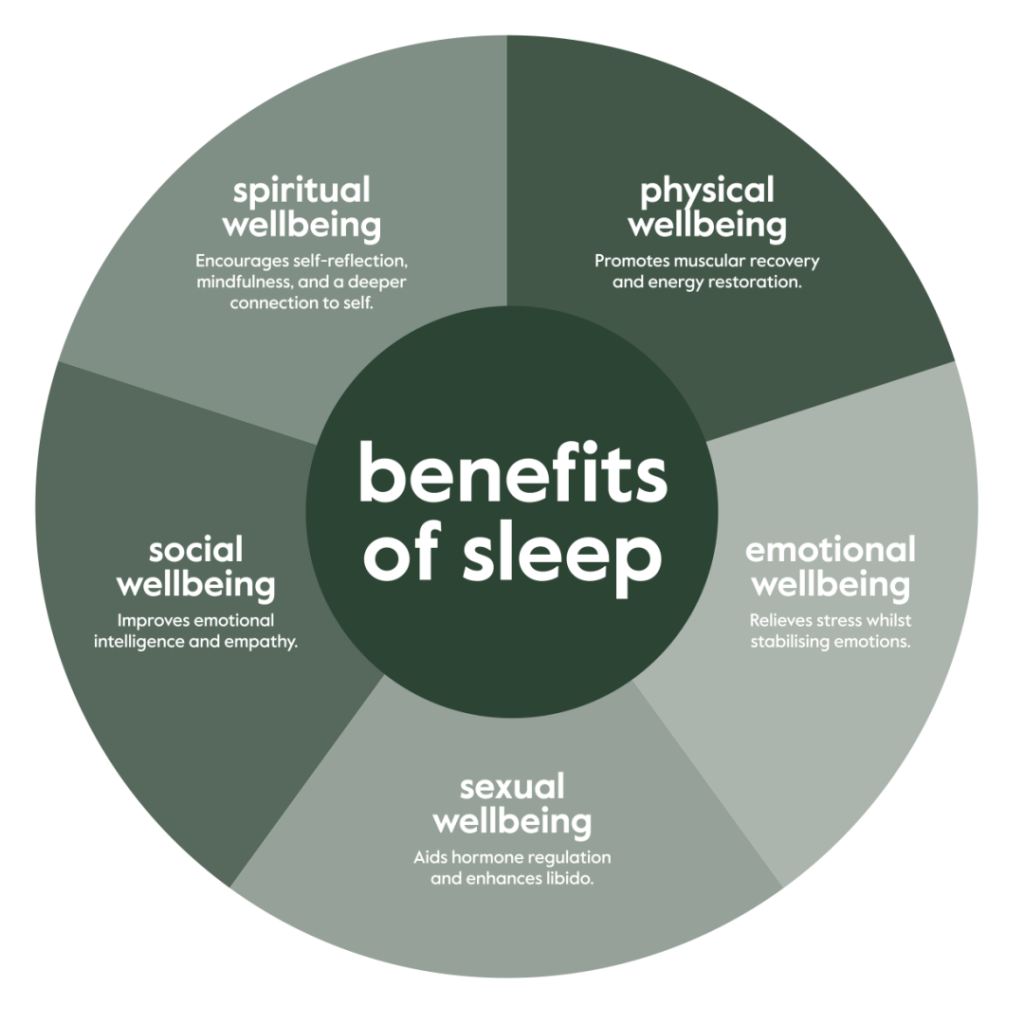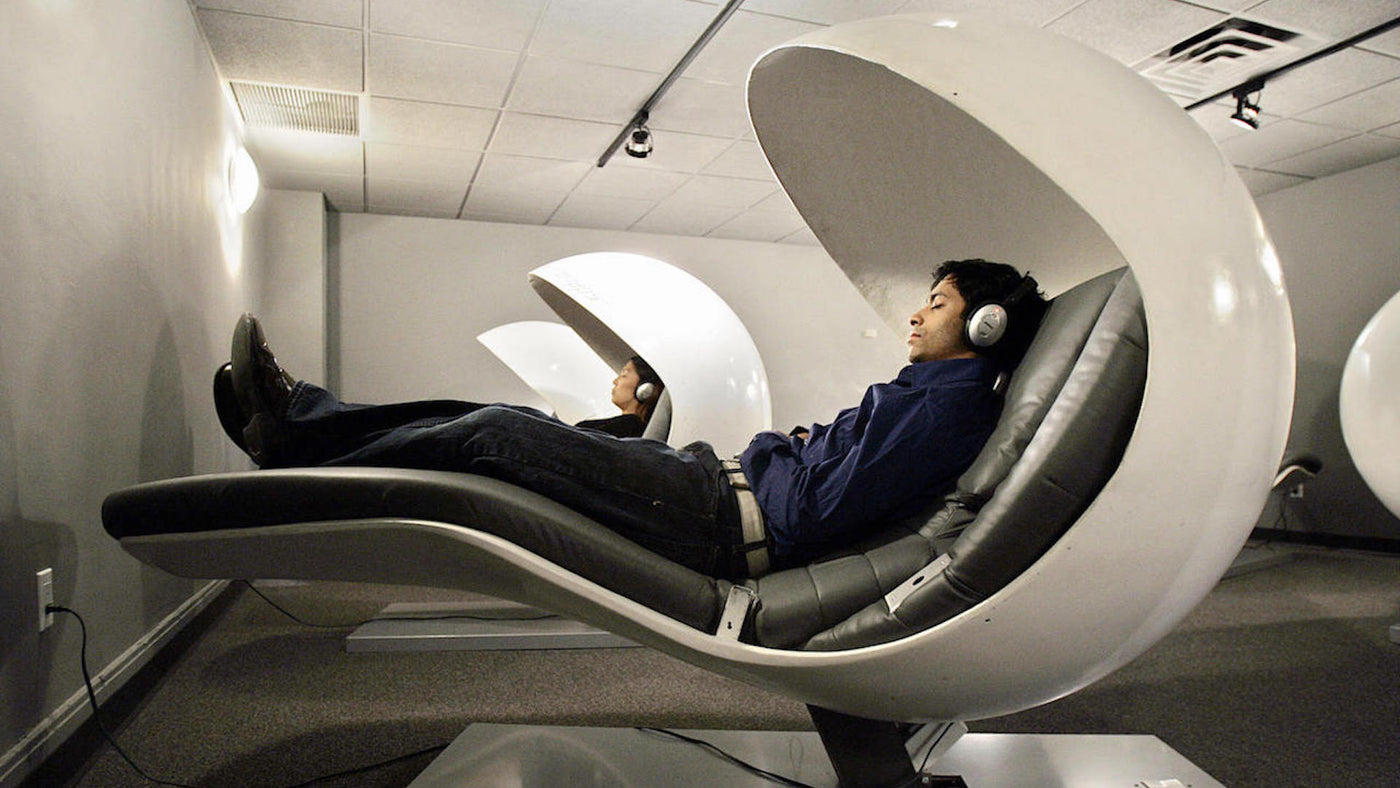INTRODUCTION:
Sleep is often viewed as a luxury or an afterthought, but it is, in fact, one of the most important pillars of overall health. Adequate and quality sleep is essential for physical recovery, mental clarity, emotional balance, and longevity. Understanding the significant role sleep plays and how to optimize it can dramatically improve your health and quality of life. This article explores the connection between sleep and health and provides practical tips to help you get the best rest possible.

1. Sleep and Physical Health
Sleep is integral to your body’s ability to heal and recover. During sleep, your body undergoes processes that repair tissues, strengthen the immune system, and regulate essential hormones.
How Sleep Affects Physical Health:
- Cell Repair and Regeneration: During deep sleep stages, your body produces growth hormone, which is essential for muscle growth, tissue repair, and bone health.
- Immune Function: Sleep enhances your immune system’s ability to fight infections, helping you recover faster and maintain overall health.
- Weight Management: Sleep regulates hormones that control hunger and metabolism, such as ghrelin and leptin, helping to prevent weight gain or obesity.
2. Sleep and Cognitive Function
Sleep is crucial for cognitive processes such as memory consolidation, learning, and problem-solving. Lack of sleep can impair your ability to focus, make decisions, and retain information.
How Sleep Enhances Brain Function:
- Memory Consolidation: During sleep, the brain processes and stores new information, turning short-term memories into long-term ones. Poor sleep can hinder this process and affect your ability to learn.
- Improved Focus and Concentration: A good night's sleep improves attention, concentration, and decision-making abilities, whereas sleep deprivation leads to cognitive fog and reduced efficiency.
- Creativity and Problem-Solving: Studies show that sleep promotes creativity by allowing the brain to make connections and insights that might not be possible when awake.
3. Sleep and Emotional Well-Being
The link between sleep and emotional health is profound. Sleep deprivation has been shown to increase emotional sensitivity, reduce coping mechanisms, and contribute to mental health disorders such as anxiety and depression.
How Sleep Impacts Emotional Health:
- Mood Regulation: Sleep helps regulate emotions by recharging the brain and lowering stress hormones like cortisol. Poor sleep can lead to irritability, mood swings, and even depressive symptoms.
- Stress Management: Chronic sleep deprivation can make it harder to manage stress effectively, contributing to a cycle of emotional instability.
- Mental Health: Sleep plays a significant role in maintaining mental health, with research showing that insufficient sleep is linked to higher rates of anxiety, depression, and other mood disorders.

4. Sleep and Longevity
A lack of sleep has been associated with a higher risk of chronic diseases such as heart disease, diabetes, and stroke, which can impact longevity. On the other hand, consistent and quality sleep can contribute to a longer, healthier life.
The Connection Between Sleep and Longevity:
- Reduced Risk of Chronic Disease: Quality sleep helps lower blood pressure, reduce inflammation, and regulate glucose levels, all of which are critical for preventing chronic illnesses.
- Increased Lifespan: Studies suggest that people who consistently get adequate sleep tend to live longer, healthier lives compared to those who suffer from chronic sleep deprivation.
5. How to Optimize Sleep
While sleep is essential for health, not everyone gets the restorative rest they need. There are several strategies you can adopt to optimize your sleep and improve its quality.
Tips to Improve Sleep Quality:
- Stick to a Consistent Sleep Schedule: Going to bed and waking up at the same time every day, even on weekends, helps regulate your body’s internal clock and improves sleep quality.
- Create a Sleep-Friendly Environment: Your bedroom should be quiet, cool, and dark. Consider using blackout curtains, earplugs, or a white noise machine to create the optimal sleep setting.
- Limit Exposure to Screens: The blue light emitted by phones, tablets, and computers can interfere with your body’s production of melatonin, the hormone responsible for sleep. Avoid screens at least 30 minutes before bed.
- Relax Before Bed: Incorporate calming activities into your bedtime routine, such as reading, meditating, or taking a warm bath. Avoid heavy meals or intense exercise right before bed.
- Mind Your Caffeine Intake: Caffeine can stay in your system for hours and interfere with sleep. Avoid consuming coffee, tea, or chocolate later in the day.
- Get Regular Exercise: Regular physical activity promotes better sleep, but avoid vigorous exercise close to bedtime as it can have the opposite effect.
6. The Importance of Napping
While a full night of sleep is the ideal, napping can also be beneficial when done correctly. Short naps (20-30 minutes) can boost alertness, improve mood, and enhance performance without interfering with nighttime sleep.
How to Nap Effectively:
- Keep It Short: Limit naps to 20-30 minutes to avoid disrupting your regular sleep cycle.
- Nap Earlier in the Day: Try to nap in the early afternoon, as napping too late can make it harder to fall asleep at night.

Conclusion
Sleep is not a luxury but a necessity for maintaining good health. It plays a critical role in physical recovery, cognitive function, emotional regulation, and longevity. By understanding the profound impact sleep has on your overall health and adopting strategies to optimize it, you can unlock the many benefits of restorative rest. Prioritizing sleep is an investment in your long-term health, well-being, and quality of life.


You must be logged in to post a comment.